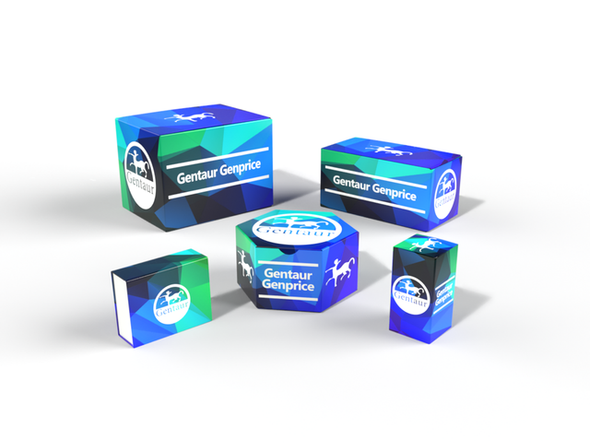451 Recombinant Proteins and Cell culture
FIE | Fertilization-independent endosperm | AS12 2616
- SKU:
- 451-AS12 2616
- Availability:
- Usually ships in 5 working days
Description
FIE | Fertilization-independent endosperm | AS12 2616 | Gentaur UK, US & Europe Distribution
Immunogen: KLH-conjugated synthetic peptide derived from Arabidopsis thaliana FIE protein sequence, UniProt: Q9LT47, TAIR: At3g20740
Host: Rabbit
Conjugation: N/A
Clonality: Polyclonal
Isotype: N/A
Purity: Immunogen affinity purified serum in PBS pH 7.4.
Format: Lyophilized
Tested Application: Western blot (WB)
Related Products: collection of antibodies to proteins involved in plant developmentPlant protein extraction buffer Secondary antibodies
Recommended Dilutions: 1 : 1000 (WB)
Molecular weight: 41 kDa
Confirmed Reactivity: Recombinant FIE protein
Predicted Reactivity: Arabidopsis thaliana, Solanum lycopersicum, Triticum aestivumSpecies of your interest not listed? Contact us
Not reactive in: No confirmed exceptions from predicted reactivity are currently known
Additional Information: This antibody so far has been confirmed to detect recombinant FIE protein, GFP-tagged. Optimization of protein extraction and detection using most sensitive reagents may result in recognition of endogenous FIE.
Background: FIE (fertilization-independent endosperm) belongs to polycomb group (PcG) protein which act by forming multiprotein complexes, required to maintain the transcriptionally repressive state of homeotic genes throughout development. PcG proteins are not required to initiate repression, but to maintain it during later stages of development.
Reconstitution: For reconstitution add 50 µl of sterile water
Storage: Store lyophilized/reconstituted at -20°C; once reconstituted make aliquots to avoid repeated freeze-thaw cycles. Please remember to spin the tubes briefly prior to opening them to avoid any losses that might occur from material adhering to the cap or sides of the tube.
TAIR Nnumbre: AT3G20740
Category: Signal transduction
Research Area: Cell Signaling






